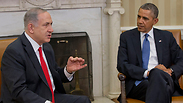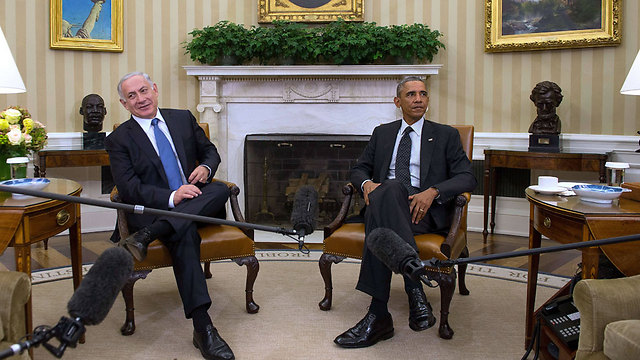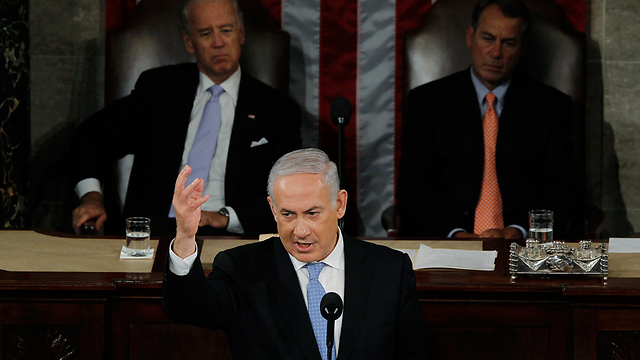
'Israel and US choosing to escalate rift'
New York Times says officials 'making little effort' to mend ties and PM's reelection could lead to 'virtual freeze' in top-level relationship.
The newspaper said that while a pattern of disagreements followed by pacification has been established over the last six years, senior officials now appear to be "making little effort" to repair the most recent rift.
After US House Speaker John Boehner announced that he had invited Netanyahu to address Congress without first notifying the president, Obama said he would decline to meet the Israeli leader during his visit, saying it would be "inappropriate" to meet him two weeks before the prime minister would run for reelection.
A US spokesperson criticized on Friday Israel's decision to issue tenders for the construction of 450 housing units in the West Bank, saying the move "would only undermine the ability of the Israelis to build support internationally".
The Times said that if Netanyahu is reelected, "the result may be a virtual freeze in the relationship at the very top" for the rest of Obama's tenure.
The newspaper earlier reported that Netanyahu recently reached out to senior Democrats, but failed to alleviate tensions.
Efraim Halevy, former head of Israel’s Mossad intelligence agency said in the report that Israel's government had decided to tacitly support the Republican Party. “Israel is now placing its bets on one side of the aisle,” Mr. Halevy reportedly said. “I think it’s a mistake.”
"This is a different kind of crisis," Eytan Gilboa, an expert on Israeli-American relations at Bar-Ilan University, told the New York Times.
Martin Indyk, a former special envoy for Israel-Palestinian negotiation, told the newspaper that the diplomatic crisis was unprecedented, and that it was unclear whether there was "a way back from the brink". “So the question is, is there a way back from the brink? Because if Bibi is re-elected, we have to find a way and he has to find a way. But it’ll take the two leaders to decide that they have an interest in burying the hatchet.”
Meanwhile, Edward Djerejian, a former American ambassador to Israel, said he "wouldn’t anticipate a major shift in the relationship until the presidential election in 2016,” according to the Times.
Meanwhile, Israel's ambassador to the United States, Ron Dermer, told The Atlantic that it was Boehner's role to inform Obama of his decision to invite Netanyahu to address Congress. "The prime minister and the president have disagreed on issues, but the prime minister has never intentionally treated the president disrespectfully—and if that is what some people felt, it certainly was not the prime minister’s intention," said Dermer.
Dermer added that he was told "the speaker’s responsibility and normal protocol for the Speaker’s office to notify the administration of the invitation. That is why I felt it would be inappropriate for me to raise the issue with the administration, including in my meeting with the secretary of state, until the speaker notified them."












